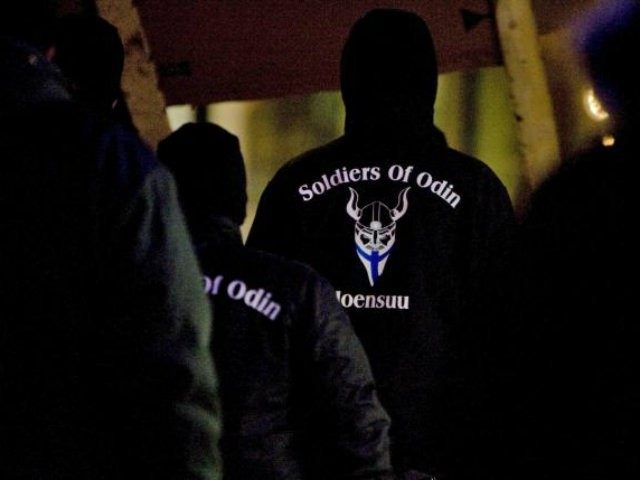Wearing black jackets adorned with a symbol of a Viking and the Finnish flag, the “Soldiers of Odin” have surfaced as self-proclaimed patriots patrolling the streets to protect native Finns from immigrants, worrying the government and police.
On the northern fringes of Europe, Finland has little history of welcoming large numbers of refugees, unlike neighbouring Sweden. But as with other European countries, it is now struggling with a huge increase in asylum seekers and the authorities are wary of any anti-immigrant vigilantism.
A group of young men founded Soldiers of Odin, named after a Norse god, late last year in the northern town of Kemi. This lies near the border community of Tornio, which has become an entry point for migrants arriving from Sweden.
Since then the group has expanded to other towns, with members stating they want to serve as eyes and ears for the police who they say are struggling to fulfil their duties.
Members blame “Islamist intruders” for what they believe is an increase in crime and they have carried placards at demonstrations with slogans such as “Migrants not welcome”.
While most Finns disapprove of the group, its growth signals disquiet in a country strained by the cost of receiving the asylum seekers while mired in a three-year-old recession that has forced state spending and welfare cuts.
Finnish police have also reported harassment of women by “men with a foreign background” at New Year celebrations in Helsinki, as well as at some public events last autumn.
This followed complaints of hundreds of sexual assaults on women in Cologne and other German cities – with investigations focused on illegal migrants and asylum seekers – and allegations that Swedish police covered up accusations of similar assaults by mostly migrant youths in Stockholm.
Police files show reported cases of sexual harassment in Finland almost doubled to 147 in the last four months of 2015 from 75 in the same period a year earlier. The figures give no ethnic breakdown of the alleged perpetrators.

COMMENTS
Please let us know if you're having issues with commenting.